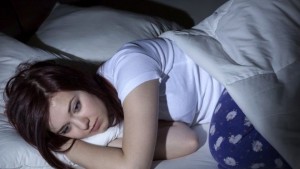 It’s 3:00 a.m. and you still cannot sleep. Between tossing and turning you mentally scream, “Just go to sleep!”, but it doesn’t come. You begin to calculate how many hours before you need to get up to go to work. Your to-do list begins to run through your mind later morphing into an in-depth analysis of your life:
It’s 3:00 a.m. and you still cannot sleep. Between tossing and turning you mentally scream, “Just go to sleep!”, but it doesn’t come. You begin to calculate how many hours before you need to get up to go to work. Your to-do list begins to run through your mind later morphing into an in-depth analysis of your life:
Will I be able to pay my bills this month?
Why has my boyfriend been so distant lately?
I really don’t want to give that presentation at work tomorrow!
Suddenly, it’s 7:00 a.m. and your alarm is screeching. Time to get up and face the day on as little as 1-2 hours of sleep.
If the above scenario sounds familiar, you may be suffering from sleeping problems also known as sleep deprivation and insomnia. According to the Mental Health Foundation, as many as 30% of people in the UK are suffering from severe sleep deprivation. Lack of sleep can lead to a variety of issues, including mental health issues. If you are having difficulty falling or maintaining sleep during the evening or suffering from irritability and lack of mental and physical alertness during the day, it may be insomnia.
Causes
Insomnia can be tied to a temporary cause such as stress about starting a new job. However, insomnia can also be continual and it has been tied to a variety of physical and psychological causes.
Medical Issues: Chronic pain, allergies, cold and flu, asthma, acid reflux or side effects of some medications, particularly those that contain caffeine.
Sleep Disorders: Sleep apnea, sleepwalking, restless leg syndrome and narcolepsy.
Psychological Issues: Anxiety, depression, post-traumatic stress disorder, bipolar disorder, and general stress.
Lifestyle Issues: Shift work, frequent travel, caffeine or alcohol intake, drug use, and social life
Effects
The effects of sleep deprivation can affect one’s mind and body, including a significant decrease in alertness. Studies show that alertness and performance can be reduced by 32% with as little as a half hour reduction in sleep.
Additionally, memory and cognitive functions decrease, making it difficult to process or retain information. These impairments can affect a person’s ability to drive a vehicle or operate machinery; it can also result in occupational consequences, such as poor work performance or getting reprimanded by a boss.
Lack of sleep not only affects the individual, but their partner. When one partner is tossing and turning, it disrupts their partner’s sleep, as well. When one or both partners are suffering from the effects of sleep deprivation this may lead to irritability and conflicts within the relationship. And if suffering from chronic sleep deprivation it may even lead to separate bedrooms or divorce.
Treatment
It has been proven that maintaining a consistent sleep routine can improve sleep habits. Therefore, by making minor lifestyle changes, you too may be able to break the vicious cycle of insomnia and improve the quality of your sleep.
Exercise: Regular exercise is not only good for you physically; it can also help reduce stress levels that have been proven to increase insomnia.
Bedtime routine: Creating a bedtime routine in which you go to bed and get up at the same time everyday will help to reestablish your circadian rhythm. Also, partaking in relaxing bedtime rituals, such as taking a warm bath or shower prior to bed or putting on lavender lotion can help the body relax into sleep. Lastly, set aside 8 hours for sleep.
Bedroom décor: The bedroom should be the most relaxing room in your home. Using warm colors, such as blue, is psychologically proven to be relaxing. Additionally, using heavy curtains or wearing a sleep mask to block out the light.
Electronics: In our society, disconnecting from our gadgets may give us some anxiety, but it is important to turn off the TV, smartphones, IPads and Computers a few hours before bed. This is due to the stimulating effects they have on the brain and the interference with sleep.
If lifestyle changes are not effective in improving your quality of sleep, you may want to consult with a general doctor or mental health professional to address the physical or psychological issues, listed above, which may be interfering with your ability to sleep well.

